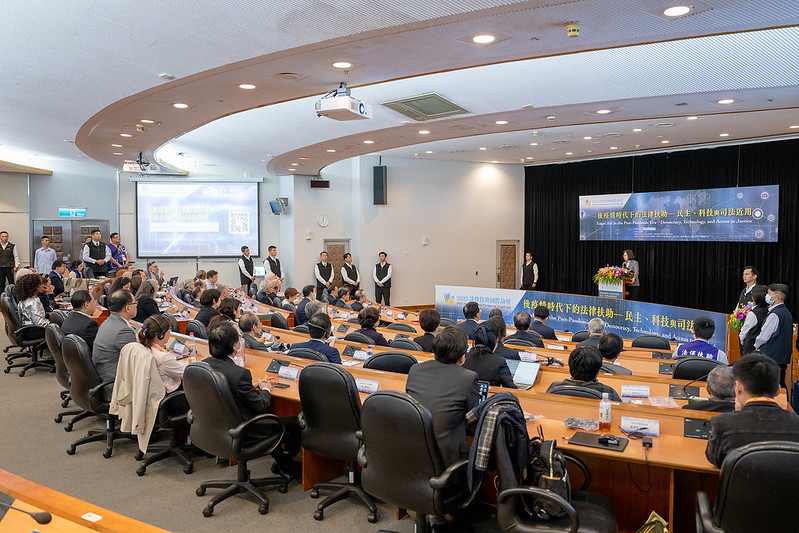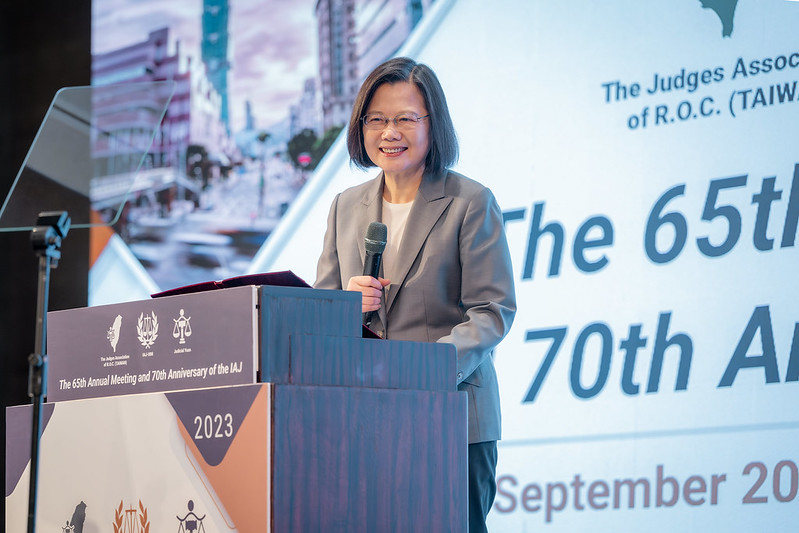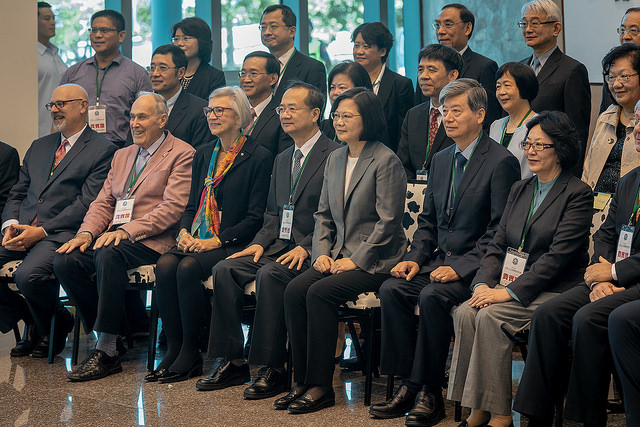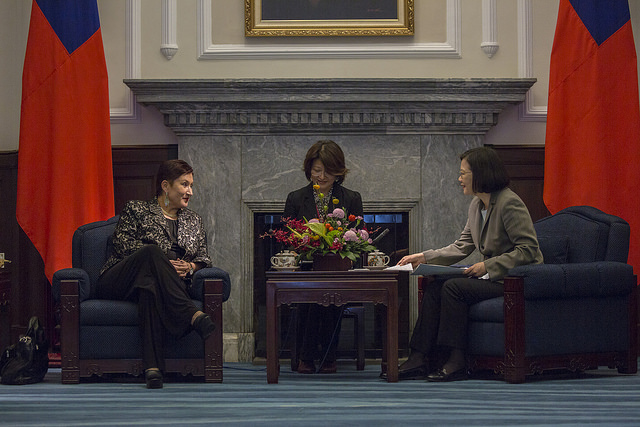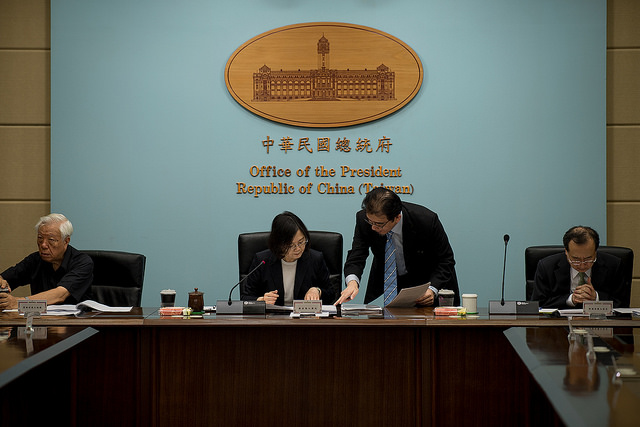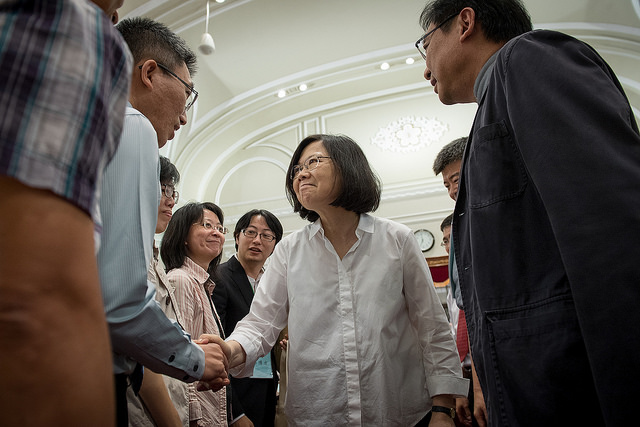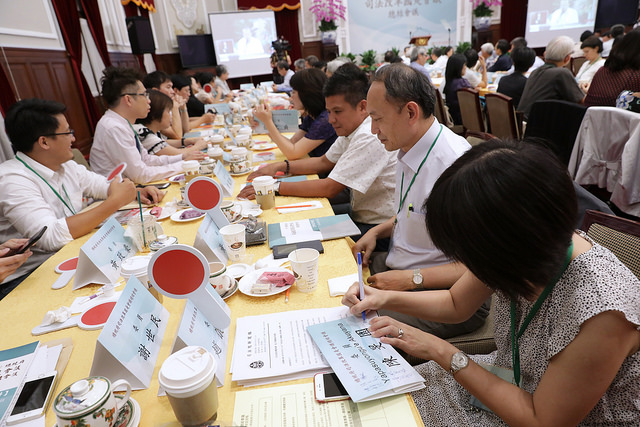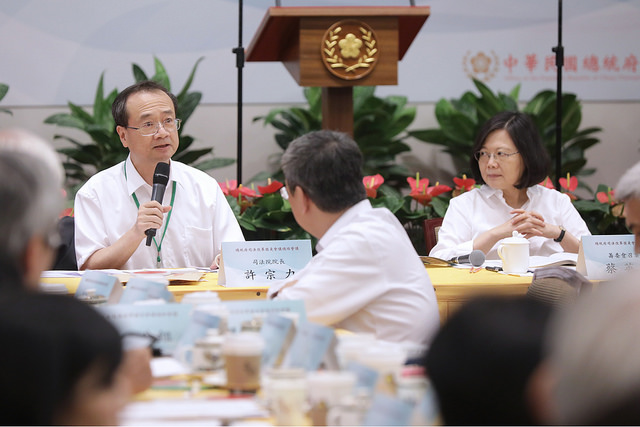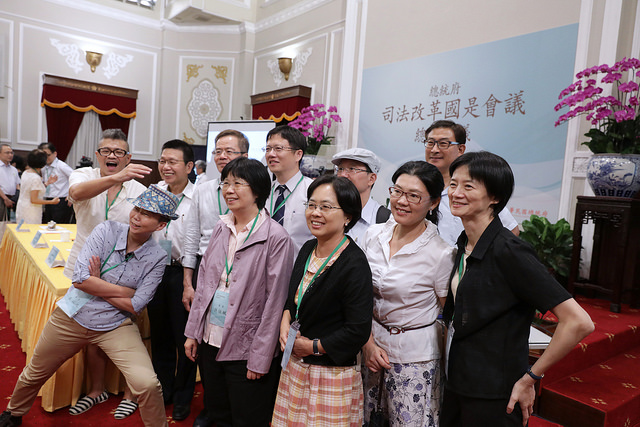News & activities
 News releases
News releases
After a full day of discussions on August 12 at the Presidential Office National Conference on Judicial Reform, President Tsai Ing-wen summarized the conference results, emphasizing that the true key to judicial reform lies in subsequent action. She also said she would closely monitor reform progress and she asked all government agencies involved to keep reforms firmly on track, enhance their efficacy and pick up the pace to create a judicial system that the public can depend on.
The following is a translation of President Tsai's remarks:
Once again, I want to thank all of the conference participants. We've been hard at work since this morning, and heard many insightful opinions. Your remarks have all been marked by heartfelt hopes and expectations.
This has been a very significant judicial reform conference, not just because so many different viewpoints were expressed, but also because we changed the methods of the past. Over half of the people we invited to participate in these discussions were not from the legal profession, so perspectives on legal reform won't be limited to legal experts. That also allowed the people who utilize the legal system to express their perspectives, while taking the ideas and needs of the general public into consideration. That change was necessary to thoroughly examine our legal system.
I want to take this opportunity to urge all incumbent judges and prosecutors to encourage and support each other. For people within the system, being put under a microscope may be uncomfortable, tiring, and frustrating. No one understands that more than I do.
But working in the public sector, being paid by the state, we are obliged to accept criticism and submit to oversight. And I do believe that most of our judges and prosecutors have high hopes for reform.
As the leader of our government, I will work with the Judicial Yuan, the Ministry of Justice, and all of my government colleagues to promote judicial reform. Where changes are possible, we must not hesitate. Where changes take more time and a step-by-step approach, we must establish clear procedures and timetables. Where there are difficulties, we must not be afraid to explain them, and have a dialogue with Taiwan society.
A positive approach will help the public understand reform efforts, and change some of society's stereotypes about the judicial system. If we give our very best efforts, I am sure that one day, we can make our society believe that they can trust our justice system.
I also want to say a few words to participants from the private sector, and members of the public who care about judicial reform. I thank you for your candid and sincere suggestions. Your efforts will not be in vain. This National Conference has heightened awareness of judicial reform issues, and spurred many concrete reform proposals. These achievements belong to all of you, and to Taiwan society as a whole.
I'm sure everyone is well aware that changing such a long-standing and complex situation requires more effort and time than just talking about it. And from the resolutions of the various subcommittees, and the diversity and difficulty of the issues that have been raised, we can see that the road ahead—from initiatives to implementation— will be long.
So please give the government some time, and during the reform process, continue providing civilian oversight to ensure that the progress we've achieved so far will be translated into concrete results.
I know that many points of consensus reached at the last national judicial reform conference in 1999 were never implemented, and I noticed many of the comments we heard here today focused on the word "implementation."
We were never under the illusion that a conference would resolve all these issues. The real key lies in subsequent action. And as convener of the National Conference on Judicial Reform, my responsibility does not end here.
First, after this national conference concludes, I will personally monitor reform progress very closely. I intend to ask Professor and former Grand Justice Lin Tzu-Yi (林子儀) to chair an advisory task force, and regularly report to me about public feedback regarding judicial reform progress. This will help me understand perspectives from throughout society.
Second, judicial reform involves the rights and responsibilities of all five branches (yuan) of Taiwan's government, and that will require coordination. As president, this is my constitutional responsibility, so I will take on the task of coordinating between the five yuan. I will help them maintain good lateral communications, and monitor their concrete progress.
Third, agencies under the Judicial Yuan and the Executive Yuan need to keep reforms firmly on track, enhance their efficacy and pick up the pace. For reforms where there is already a consensus, and no need to amend laws, please propose and promote feasible measures as soon as possible. I would also request that the Executive Yuan establish a mechanism to coordinate cross-agency matters and determine a proper division of labor.
Fourth, I also want to ask the Judicial Yuan and the Executive Yuan to bring forth a report every six months regarding the reform schedule, explaining to the public how reforms are progressing.
Fifth, many of the issues addressed at this national conference involve the rights and responsibilities of the legislative branch, so full communication with legislators, who represent the will of the people, is needed. The relevant agencies must arrange to report to the legislature with full explanations. In cases that involve amending the law, please solicit a broad range of public opinion so that people who haven't taken part in the National Conference can air their views. Once a consensus is formed, we can bring about draft legislation to the Legislative Yuan for deliberation.
And finally, I want to thank all my fellow citizens who have provided opinions, taken part in online discussions, and otherwise shown concern for judicial reform, as well as all the conference participants and our government colleagues. You have all played important roles in the judicial reform process.
I also want to specially thank the distinguished guests who attended this morning's proceedings, especially Chairman James Soong (宋楚瑜) of the People First Party, Chairman Huang Kuo-Chang (黃國昌) of the New Power Party, and Chairperson Hsu Hsin-ying (徐欣瑩) of the Minkuotang, all of whom shared very valuable suggestions. The support provided by all of the political parties through their participation and concern is certainly an asset for our reform efforts.
More than an investigation of different systems or a matter of academic research, judicial reform is an integral part of people's lives. Many people are pinning their hopes on us, including those on the front line of judicial work, crime victims and their families, those who have suffered unfair treatment in the judicial system, and every citizen who hopes that justice will be fully realized.
We must remain firm so that the public will come to trust the judicial system. We cannot hesitate on reform issues. We must move full steam ahead, and continue our efforts. Although this meeting is drawing to a close, reform will keep moving ahead. Thank you!
